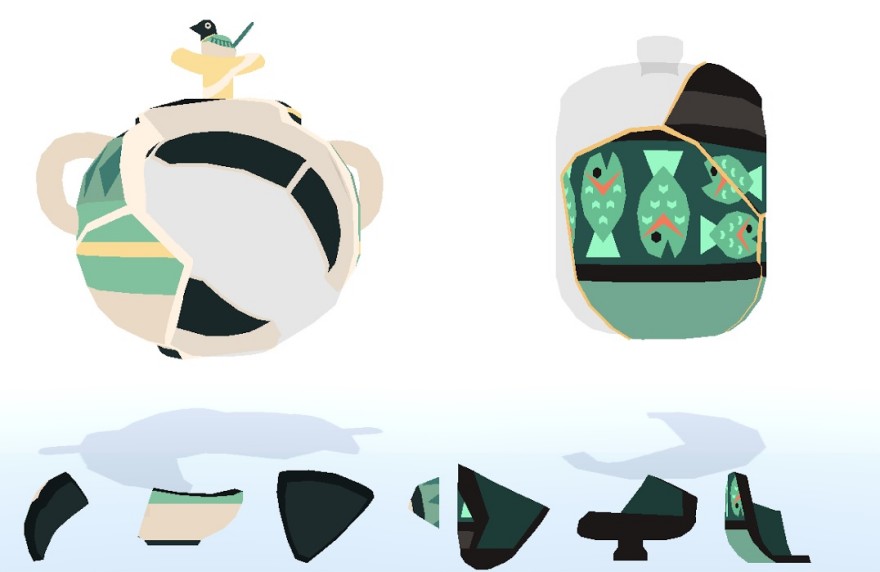I have but one question to ask about puzzles: if at some point a creator had a complete picture, why on earth would they smash it into pieces just so we would have to do more work before enjoying it?
Kintsukuroi, an Android “experiment” by Chelsea Saunders, attempts to answer this question. It takes its name from a Japanese practice in which smashed ceramic vessels are painstakingly pieced back together. The game’s mechanics are also derived from this practice: it is a series of 3D puzzles that, once solved, produce interesting pieces of pottery. In total, Kinsukuroi will offer 20 puzzles that you can attempt to complete in a timed challenge or as a form of free play.
Would you care about these objects in any other context? Would the little, spherical pot change your life? Would you fall in love with a ceramic dog? Kintsukuroi, which translates to “repair with gold,” beautifies and highlights the cracks of a reconstructed piece with sparkling gold or silver. It suggests that these objects are more interesting by dint of their fissures. The game serves to underscore this point: you would not be paying attention to these objects if they didn’t have interesting fissures. Static objects make for bad games. Challenges and cracks, on the other hand, are compelling. These objects may no longer be functional vessels, but they are consequently more sculpturally compelling.
In the documentation accompanying Kintsukuroi’s trailer, Saunders suggests that the value of this process is not merely artistic. “Kintsukuroi’s main goal is to center someone who’s anxious,” she writes, “to provide them something to focus on in a calming environment while also giving them a sense of progression and accomplishment.” Many games can fulfill most—if not all—of these functions, but Kintsukuroi appears more hospitable to these calming ambitions than most.

The stakes are always reasonably low, the clock can be turned out, and the end result is serene beauty. Moreover, as Saunders explains, the practice of kintsukuroi is a good metaphor for anxiety: “As someone who regularly deals with anxiety I often find myself picturing returning to a calm state in stages, or waves, or pieces of something broken realigning.” Thus, whereas many games might have the structural features to help with anxiety, Kintsukuroi is also on-message. Some people drink tea to cope with anxiety; maybe they’d be better served rebuilding a teacup.
You can download Kintsukuroi for free on Google Play.
